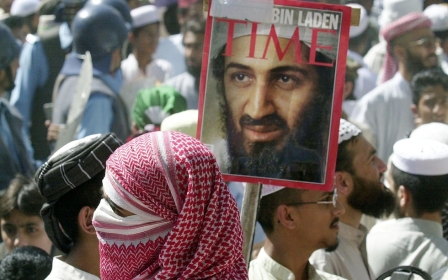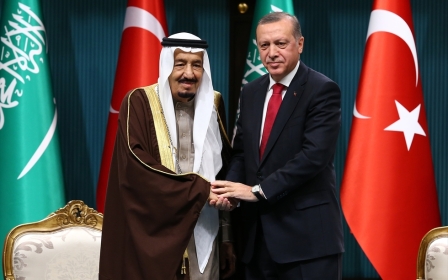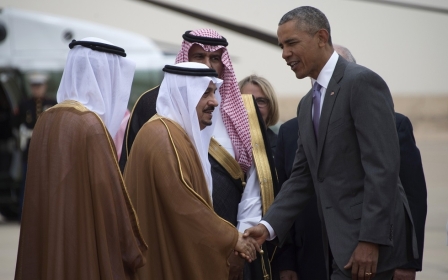Gulf states looking beyond Obama

The Riyadh summit on 21 April between US President Barack Obama and the Gulf Cooperation Council (GCC) was never going to be a particularly comfortable affair given the regional environment and preceding developments. Obama angered Gulf states last month by calling them "free riders" for their over-reliance on the US military, and by saying arch-rivals Saudi Arabia and Iran "should share the neighbourhood".
The summit took place amid legislation proposed by Democrats in the US Senate that would enable victims of the 9/11 attacks to sue the Saudi government if it is found to have been involved. This led to Riyadh threatening to sell $750 billion of its US holdings if the bill passes. And January saw international sanctions lifted from Iran as part of a nuclear deal in which the Obama administration was pivotal, and which Gulf states strongly opposed.
As such, Obama's arrival in Riyadh to what was widely considered a snub by Saudi King Salman was unsurprising, not least because the monarch was absent altogether from the preceding summit in Camp David last year (and that was before the nuclear deal was announced). This time around, the king sent Riyadh's governor to meet Obama, and Saudi state media did not broadcast his arrival, unlike the monarch's greeting of Gulf leaders.
However, for all the attention the summit received, it was a non-descript affair, as it was supposed to be. Neither side changed the other's mind on major issues of divergence - high among them US-Iranian rapprochement and the Syrian conflict - and neither side expected to. Indeed, Obama defended the nuclear deal.
As such, the summit was largely a symbolic courtesy visit, more about it taking place than about what might result from it. It was a sign of continued mutual commitment despite significant differences, in the form of words and deeds on various levels that, while reassuring, did not amount to a sea change in the nature or depth of ties.
Indeed, with just nine months left in the White House, and this almost certainly his last visit to Saudi Arabia as president, there was no need for Obama to change course on anything of substance. Likewise, the Gulf states are looking beyond him to his potential successors. As leading pan-Arab newspaper Al-Hayat put it, it was merely "a farewell summit". Obama "will no longer be either useful or relevant to the Gulf states".
In that respect, however upset the Gulf states may be with him, there is no clear indication as yet that any of his potential successors will be any more favourable. For example, both Democratic hopefuls Hillary Clinton and Bernie Sanders support the Iran nuclear deal and the 9/11 bill.
The latter is also supported by Republican front-runner Donald Trump, who said last month he would consider stopping oil purchases from Saudi Arabia, adding that if the kingdom "was without the cloak of American protection, I don't think it would be around."
In any case, it would suit neither side to rock the boat too much because as they have reiterated, the United States and Gulf countries need each other. Besides, the latter does not have the leverage to twist Washington's arm over Middle East policy.
The US is reducing its dependence on oil from the region, and Gulf purchases of American weaponry have skyrocketed under Obama. Indeed, King Salman's determination to chart a more assertive Saudi role in the region - including the formation of Arab and Muslim military alliances - amid perceptions of US reticence is still reliant on American weaponry and support.
Furthermore, no other country could adequately take the place of the US as a patron of Gulf security. Other allies such as Britain and France are nowhere near as powerful, and a rising China and resurgent Russia are close to Iran and the Syrian regime.
As such, the US is in a win-win situation where it has the prospect of hugely lucrative Iranian markets following the nuclear deal, while still being able to retain the Gulf states as reliable clients with deep pockets. In fact - and perhaps ironically - the US will be able to profit even further from weapons sales, due to the sense of Gulf insecurity brought about by Tehran now being unencumbered by sanctions following the nuclear deal.
From a Gulf perspective, pushing the US too hard over Iran may be counter-productive given that relations between Washington and Tehran have been anything but friendly since the deal was signed and sanctions lifted. The two have sparred over the latter's recent ballistic missile tests - over which the US has imposed new sanctions - and are still far apart on major regional issues in which they are both involved.
Citing Iran's "destabilising activities" in the region, Obama said in Riyadh: "Even with the nuclear deal... we continue to have serious concerns about Iranian behaviour." He "reaffirmed the policy of the US to use all elements of our power... to deter and confront external aggression against our allies." Shortly before his arrival, the US and GCC announced that they would start joint naval patrols to block Iranian arms shipments from reaching Yemen.
Meanwhile, Tehran has complained that it is not receiving enough sanctions relief, and has described as "theft" a US Supreme Court ruling on Wednesday that it must pay nearly $2 billion in frozen assets to victims and relatives of those killed in attacks that the US has blamed on Iran. Supreme Leader Ali Khamenei, the country's ultimate decision-maker, has continued to express condemnation and suspicion of the US since the nuclear deal.
As such, the Gulf states are likely to be taking a wait-and-see approach regarding the development of Iranian-American relations, and how this will be affected by the next US president.
Given a new reality in the region post-nuclear deal, the GCC may be realising that a more feasible approach is to keep Washington on side despite re-established ties with Tehran while reducing its reliance on the US, rather than insist on it choosing between one side and the other. This approach will be aided by major obstacles facing Iranian-American rapprochement, some of them independent of the Gulf states.
- Sharif Nashashibi is an award-winning journalist and analyst on Arab affairs. He is a regular contributor to Al Arabiya News, Al Jazeera English, The National, and The Middle East magazine. In 2008, he received an award from the International Media Council "for both facilitating and producing consistently balanced reporting" on the Middle East.
The views expressed in this article belong to the author and do not necessarily reflect the editorial policy of Middle East Eye.
Photo: US President Barack Obama (L) talks with Saudi Defence Minister and Deputy Crown Prince Mohammed bin Salman (R) during the American-Gulf Cooperation Council (GCC) summit in Riyadh on 21 April, 2016 (AA).
New MEE newsletter: Jerusalem Dispatch
Sign up to get the latest insights and analysis on Israel-Palestine, alongside Turkey Unpacked and other MEE newsletters
Middle East Eye delivers independent and unrivalled coverage and analysis of the Middle East, North Africa and beyond. To learn more about republishing this content and the associated fees, please fill out this form. More about MEE can be found here.





